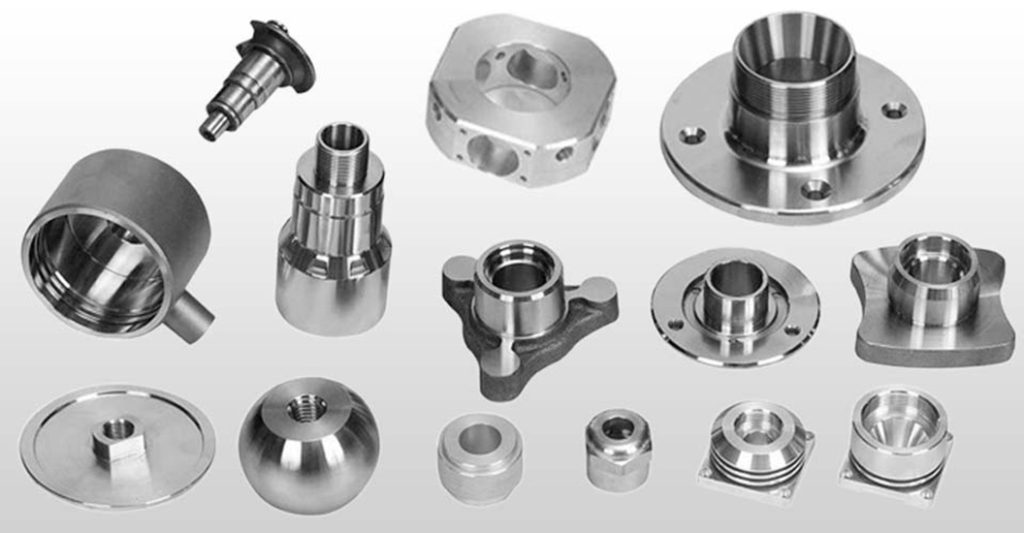
Machined parts are essential for a wide range of industries, including aerospace, automotive, and medical. A quality machining parts manufacturer can provide reliable, cost-efficient, and flexible manufacturing.
When choosing a machining company, look for certifications and word-of-mouth recommendations. You should also ensure that digital part designs follow DfM guidelines. For example, thin walls are not easy to machine, and holes should be limited to four times the diameter.
Precision
Machined parts are a key component of machinery, equipment and consumer products that require precision dimensions and specifications. They are typically made from metals like stainless steel, aluminum and brass, but can also be created with plastics and copper. They are used in many industries, including automotive, aerospace, medical and electronics.
Precision machining involves cutting and shaping the materials of an object to adhere to strict specifications. It is a subtractive manufacturing process, which requires skilled machinists to operate CNC machines. These machinists work from technical drawings provided by the client to ensure that all of the necessary details are included in the final product.
Founded in 1968, Origin Engineering-Tech America Inc is an ISO-certified company that manufactures machine parts. Its machined components include torque limiters, one-way clutches, magnet or compact limits and pressure rollers. Its products are used by the aviation, marine, aerospace and bearing industries. The company has a wide range of options for its customers, including assembly, kitting, CMM inspection and welding services.
Flexibility
Compared to other production methods, machining is flexible in terms of changing production operations. This flexibility allows companies to respond to changes in demand without incurring additional costs. This method also helps companies reduce their inventory and lead times.
Machined parts are used in a variety of industries, including aerospace, medical, and marine. For example, the medical industry uses them for surgical tools and orthopedic implants. Aerospace companies use them in aircraft manufacturing and repair, while marine manufacturers use them for naval armaments and ship engines.
The flexibility of machining is the ability to change production processes in response to changes in demand and market conditions. It also includes the ability to adjust to new products without major retooling or equipment investment. This is accomplished by using fully automated flexible manufacturing systems or cells that are equipped with robots and a climate-controlled quality inspection lab. The cells also have the flexibility to load different types of parts and material.
Efficiency
The efficiency of machining parts is important because it helps reduce production costs. Using efficient CAD/CAM programming techniques and simulation software can improve part quality, reduce machining time, and help prevent tool wear. It is also important to minimize waste, and the use of efficient clustering and nesting strategies can improve material utilization and machinability.
Machined parts are sturdier and more precise than molded or 3D printed parts, reducing the likelihood of errors during installation and operation. This can result in a significant reduction in insurance premiums for industries like construction or manufacturing, and lower liability risks for companies.
In addition, customized machined parts can eliminate the need for manual processes and dangerous hand tools. This can reduce safety hazards and costs, while improving accuracy and overall system performance. This is particularly useful in industries such as aerospace, where components need to withstand extreme conditions and operate with high precision. The use of machined parts can also make it easier to replace parts, lowering operating costs and reducing downtime.
Cost
Machined parts are sturdier and more precise than molded or 3D printed ones, but they come at a cost. The price of these parts varies according to their complexity, material, and dimensions. The choice of a specific surface finish also affects costs. More intricate finishes require more machining steps and specialized tools, which leads to higher prices.
The machinability of the chosen materials is another important factor. Harder, more expensive metals such as stainless steel are a lot more costly to fabricate than their plastic counterparts. Similarly, any special safety precautions that must be taken will add to the overall cost of production.
Lastly, the accuracy of the CAD drawings will also influence the cost of machining parts. Using universal standards for digital files and consulting a professional machinist in the design phase can reduce the risk of miscommunication that will ultimately result in costly mistakes in the finished product. It is also a good idea to sign an NDA with the manufacturer before outsourcing your machining needs to ensure confidentiality and prevent unauthorized use of your designs.